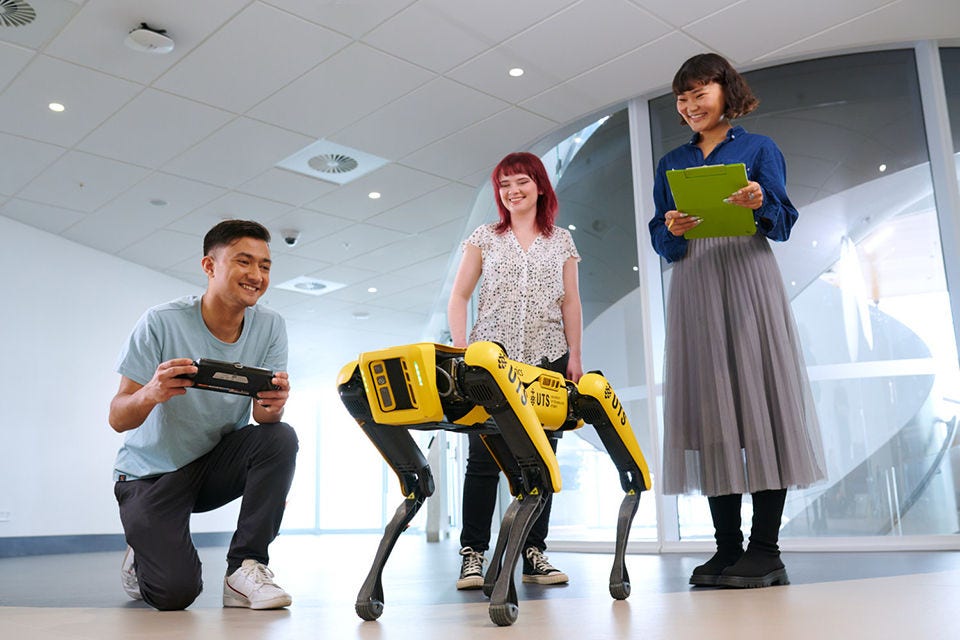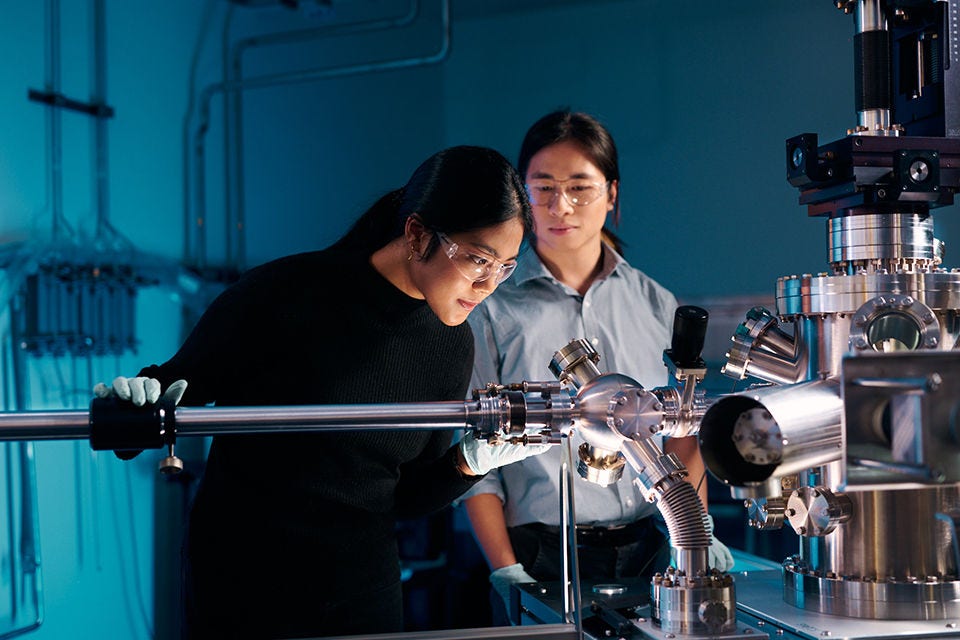We have a new and improved course search tool to help international students explore Australian study options. Find more information here
Why Australia?
Graduate with industry connections
Many engineering, automation and technology courses will give you opportunities to meet professionals in your field of study. You'll learn from guest lecturers, connect with industry mentors, and grow your professional network.
World class education
Australian education providers and courses are ranked as some of the best in the world. Courses are designed to meet international standards, so you'll graduate with a qualification that will be respected across the world.
Great job prospects
Specialists in this field are in demand across the world and in Australia. The Government has a goal to grow the tech industry to 1.2 million workers by 2030. Many more jobs are set to open up. To fill the many positions, Australia needs new, highly trained graduates.
Study options
Engineering, automation and technology are responsible for many things that make our lives easier and more enjoyable.
They’re part of producing the fabrics we wear each day, the cars we drive and the roads we use, and the phones and computers that help us stay in touch. As you mix maths, science, technology and creativity, you’ll learn the skills to come up with solutions to improve our lives in different ways.
You can choose from hundreds of courses in engineering, automation and technology. Get a broad understanding and essential skills by studying a general qualification or start your studies in one of the many specialist fields.
There are five main areas: chemical, civil, electrical, mechanical and structural. But because this field is growing as technologies advance and we have new needs, new sub-interest areas have opened up – like robotics and mechatronics, biomedical engineering, software engineering and textile technology.
The diverse range of specialist areas include:
- manufacturing technology
- chemical engineering
- civil engineering
- land information technology and remote sensing
- electrical engineering
- mechatronics
- automation
- environmental engineering
- biomedical engineering
- computer engineering
- food technology
- aeronautical and space engineering
- software engineering
- mineral and mining engineering
- plant and machine maintenance.
Additionally, Engineering Education Australia offers a Professional Year in Engineering program allowing international students to train in the field with a qualifying visa.
In whichever course you choose, you will be able to develop your industry knowledge and advanced technical skills and become better at solving problems. It is a great field to study if you enjoy finding solutions with technical thinking, and using hands-on skills to invent or improve systems, processes and objects.
Fast facts
Quality education
4 Australian education providers are ranked in the world's top 50 for engineering and technology.
Graduates in demand
More than 80% of engineering graduates find employment within six months of graduating.
Australian engineering
The Sydney Harbour Bridge, black box flight recorder, cochlear hearing implant and Wi-Fi.
Career options
With a career in engineering, automation and technology, you will be able to turn your discoveries into practical solutions for real-world challenges. These careers are usually financially rewarding too.
You could work at any part of the life cycle of a product, structure or system – in design and development, testing for efficiency and safety, providing quality control, maintenance and repair, or even training others in how to use these things.
Roles include:
- mechanical engineer
- civil engineer
- computer network professional
- software engineer
- quantity surveyor
- transport engineer
- railway signalling engineer
- communications engineer
- industrial engineer
- avionics systems engineer
- test engineer.
From improving medical equipment and healthcare systems as a biomedical engineer, to designing computer terminals and overseeing large-scale operations for aircraft, there are many possibilities for what you can achieve. You could end up working on the next megastructure, spacecraft, electric vehicle, high-tech gadget, bionic eye and more.
About the industries
There are 861,000 people employed in the tech industry across Australia. This makes it the seventh-largest employing industry in the country, and it is made up of workers from all over the world. In engineering alone, 58.5% of workers in Australia were born overseas.
Specialists in these fields are in demand, which is great news for future graduates. The Australian Government aims to have 1.2 million people in tech industry jobs by 2030. Around half of those roles need to be filled by highly trained and highly qualified technical professionals.
Demand has increased in the last few years because of more investment in public infrastructure projects, more demand for minerals, and more interest in clean energy options and ways to deal with climate change.2 Our communications networks are also growing, and we are relying more and more on digital technologies in our everyday lives.
Find out more about jobs and salaries.
Jobs in demand
Job projections for 2022 to 2026 show that demand will increase most for:
- telecommunications engineering professionals – 17.6% (3,100) more jobs
- aircraft maintenance engineers – 16.7% (1,300) more jobs
- surveyors and spatial scientists – 14.6% (2,100) more jobs
- civil engineering professionals – 13.4% (8,700) more jobs
- ICT business and systems analysts – 12.9% (5,900) more jobs.



